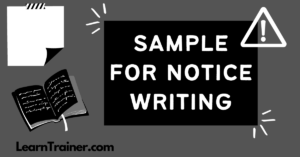We’ve all been there that moment when we need to ask someone for a favor, a request, or simply for help. Whether it’s at work, with friends, or in family situations, knowing how to ask for something politely can make all the difference in getting a positive response.
We’ve all encountered situations where we’ve hesitated to ask because we weren’t sure how to phrase it or worried about sounding demanding.
So, how can you ask for something in a way that feels respectful, professional, and kind? In this article, we will explore the best practices for making polite requests, from choosing the right words to understanding the nuances of timing and tone.
By the end, you’ll be well-equipped to ask for what you need without feeling awkward or uncomfortable.
The Art of Polite Requests: Why It Matters
When we ask for something politely, we open the door to collaboration, cooperation, and mutual respect. On the other hand, a poorly phrased or overly demanding request can create tension and even damage relationships.
Imagine asking your boss for a day off but doing it in a way that feels rushed or entitled. It’s likely that they might feel uncomfortable or dismissive, even if your request is reasonable.
A polite request isn’t just about being courteous it also reflects on how you value the person you’re addressing. It shows that you respect their time, their boundaries, and their willingness to help. And the way you ask often plays a significant role in how the request is received.
Step-by-Step Guide: How to Make a Polite Request
Here’s how you can master the art of asking for something politely:
Step 1: Consider the Context and Relationship
Before you even formulate your request, take a moment to reflect on the context and the relationship you share with the person. The more personal or informal the relationship, the more relaxed your tone can be. However, if you’re making a formal request to a supervisor, stranger, or authority figure, it’s important to be respectful and to the point.
Example:
- Informal: “Hey, could you help me out with this when you get a chance?”
- Formal: “I hope you’re doing well. If you have some time, would it be possible for you to assist me with this task?”
Step 2: Use Polite Phrases and Language
Using polite phrases can go a long way. Words like “please,” “thank you,” and “would you mind” convey respect and soften your request.
- “Could you please…”
- “Would it be possible to…”
- “I would appreciate it if…”
- “If you don’t mind…”
For example, instead of saying, “Give me the report,” you can say, “Could you please send me the report when you have a moment?” This not only sounds more polite but also shows you understand they might be busy.
Step 3: Be Clear and Specific
When making a request, be clear about what you need and, if possible, why you need it. Being vague can cause confusion or may lead to the other person declining due to misunderstandings.
Example:
Instead of: “Can you help me with this project?”
You could say: “Could you help me with the research section of this project? I’m struggling to find reliable sources.”
Step 4: Add Context or a Reason
Providing context or explaining the reason behind your request can make it more compelling. It helps the person understand why the favor is important and can often make them more willing to help.
Example:
“I need your help with this presentation because you have experience in design, and I think your input would really improve it.”
Step 5: Express Gratitude in Advance
This may seem like a small detail, but expressing gratitude before your request can demonstrate appreciation and soften the ask.
Example:
“I understand you’re very busy, but if you could find the time, I’d be grateful for your assistance.”
Understanding Tone and Body Language
In face-to-face interactions, tone and body language can make a huge difference in how your request is perceived. If you’re overly demanding or have a tense posture, even the politest words can come off as insincere or impatient.
- Tone: Keep your tone warm, friendly, and calm. Avoid sounding too passive or too assertive.
- Body Language: Make sure your body language aligns with your words. Maintain open posture, make eye contact, and avoid crossing your arms.
Example:
When asking someone to assist you, smile and keep a positive demeanor. This shows that you appreciate their potential help and creates a friendly atmosphere for the conversation.
What to Do When Your Request is Denied
Rejection can happen, no matter how polite you are in making a request. Handling denial gracefully is key to maintaining a good relationship and not coming across as pushy or upset.
- Acknowledge their decision: “I understand. Thank you for considering it.”
- Express understanding: “No worries, I know you’re busy. I’ll find another way to manage it.”
- Ask if there’s an alternative: “If you can’t assist right now, would you be able to suggest someone who might?”
This shows maturity and respect for their decision, and it allows the conversation to end on a positive note.
Polite Ways to Ask for Something in Different Situations
Let’s break down polite requests for specific scenarios:
At Work:
- “I was wondering if you could help me with this project. I’d appreciate your expertise on this matter.”
- “Would it be possible to schedule a meeting sometime next week? I’d love to discuss the upcoming proposal.”
With Friends:
- “Hey, I hate to ask, but could I borrow your car for the weekend? I’ll make sure to fill it up with gas.”
- “Do you mind if I crash at your place tonight? I’m feeling a bit under the weather.”
With Strangers:
- “Excuse me, I know you’re busy, but could you please direct me to the nearest subway station?”
- “Would you mind taking a picture of me in front of this landmark?”
These examples show how politeness and respect can go a long way in any situation, whether formal or informal.
Key Phrases for Making Polite Requests
| Scenario | Polite Request Phrase | Why It’s Effective |
| Requesting Help | “Would it be possible for you to help me with this?” | Polite and non-demanding, gives room for refusal |
| Asking for Time | “If you have a moment, I’d love to discuss this with you.” | Acknowledges the person’s busy schedule |
| Borrowing Something | “Would you mind if I borrowed your book for a week?” | Makes the request sound less like an imposition |
| Asking for Advice | “I’d really appreciate your thoughts on this when you get a chance.” | Respectful, allows the person to respond when convenient |
Conclusion
In summary, asking for something politely is all about balance being respectful, clear, and considerate while also being specific about what you need.
It’s not just about using the right words, but also understanding the context, tone, and body language that go with the request. By following the steps and tips shared in this article, you’ll be able to make polite requests that feel natural and help you build positive relationships.
Remember, politeness isn’t just a skill it’s an attitude. The way you ask for something often determines not only whether you get what you need but also how you make the other person feel.
So, next time you need a favor or help, think about your approach and try to ask in a way that leaves both you and the person you’re asking feeling respected and valued.
FAQs
Q1: What is the best way to ask for a favor politely?
The best way is to start by acknowledging the person’s time and effort. Use polite phrases like “please,” explain what you need clearly, and express gratitude in advance. For example, “Could you please help me with this report? I would really appreciate it.”
Q2: How do I ask for something without sounding too demanding?
Focus on being respectful and understanding. Be clear about your needs but offer flexibility. Avoid sounding entitled by using language like “if you don’t mind” or “I would be grateful.”
Q3: How do I politely ask someone for a big favor?
For larger requests, it’s important to show appreciation for the person’s time and effort. Be transparent about why you’re asking and how their help will make a difference. Also, offer them an easy way out if they feel uncomfortable.


